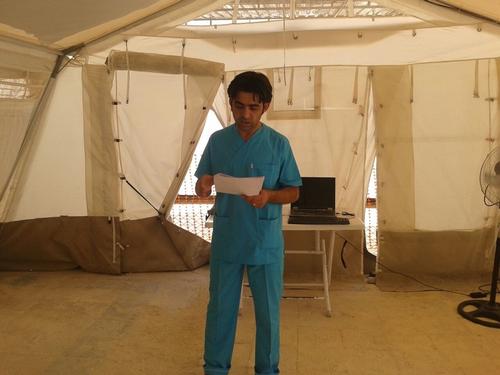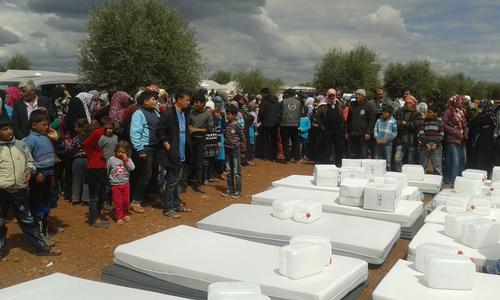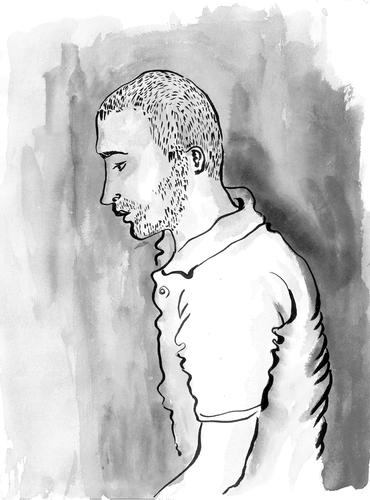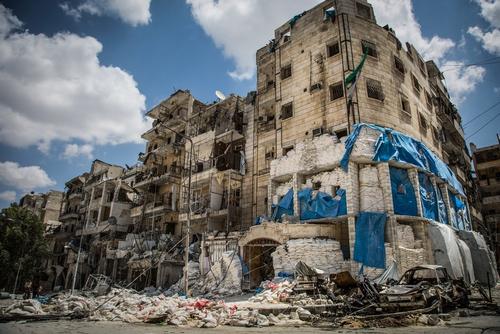Yahya Jarad, nursing superviser at MSF's Al Salamah hospital in Azaz, speaks about practising medicine in a community under siege.

I started work at MSF in October 2012, and I have been working as a nursing supervisor in the MSF hospital since then. Last February, I had to flee my home and take refuge closer to the hospital. We moved to tents and it was tough, but we are trying to cope with our situation.
A new wave of people fleeing their homes has arrived in the area as the line of fire has been getting nearer in the last 10 days. Camps close to fighting areas have been evacuated and people have been forced to flee yet again. Now they live in dire conditions, in the middle of olive trees, without any services.
Neigbouring Marea is completely encircled.
As the clashes were getting nearer, hospitals have been forced to close. For us, as the battle was closing in we had to evacuate patients and medical crews. Only a small team has been kept in to deal with stabilisation of emergency cases, and to refer patients to other hospitals and medical centres.
We live and work in a small, isolated area, which is basically cut from and we can’t refer patients that we are unable to treat to Aleppo or Idlib.
In my normal work, I am in charge of supervising the nursing team, following up the services provided to patients and checking the equipment and tools in use throughout the hospital.
We are talking about the only hospital in the region north of Azaz that can provide vaccination to children. The hospital also has a bus that was going carrying out referral activities in the camps, registering patients, bringing them back to the hospital for treatment, and taking them back home.
In February, the region witnessed a large flow of people fleeing their homes and we had to set up a medical team to deal with the situation outside the hospital. The team, which included nurses and nursing assistants, visited the camps to identify malnutrition cases and vaccination needs, detect outbreaks and register existing diseases, such as respiratory infections.
A second team was in charge of vaccination and patients transport to hospital. We saw small outbreaks of diseases such as measles and upper respiratory tract infections.
People hope to return to their homes when the war ends, but many homes have been destroyed and left in ruins.
We hope the war will come to an end, the bloodshed will stop and displaced people will be able to return home. But it seems it’s not likely to happen soon. We are doing what we can and even more. We are happy when we see our patients recover. It gives us more resolve to continue the work we are doing.
There is a difficult humanitarian situation and people are trying to cope, while aid agencies are striving to provide basic items. We hope the situation will get better.





